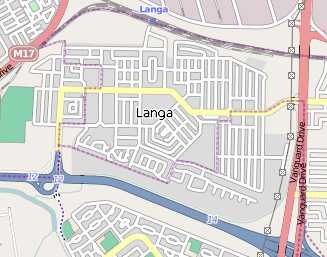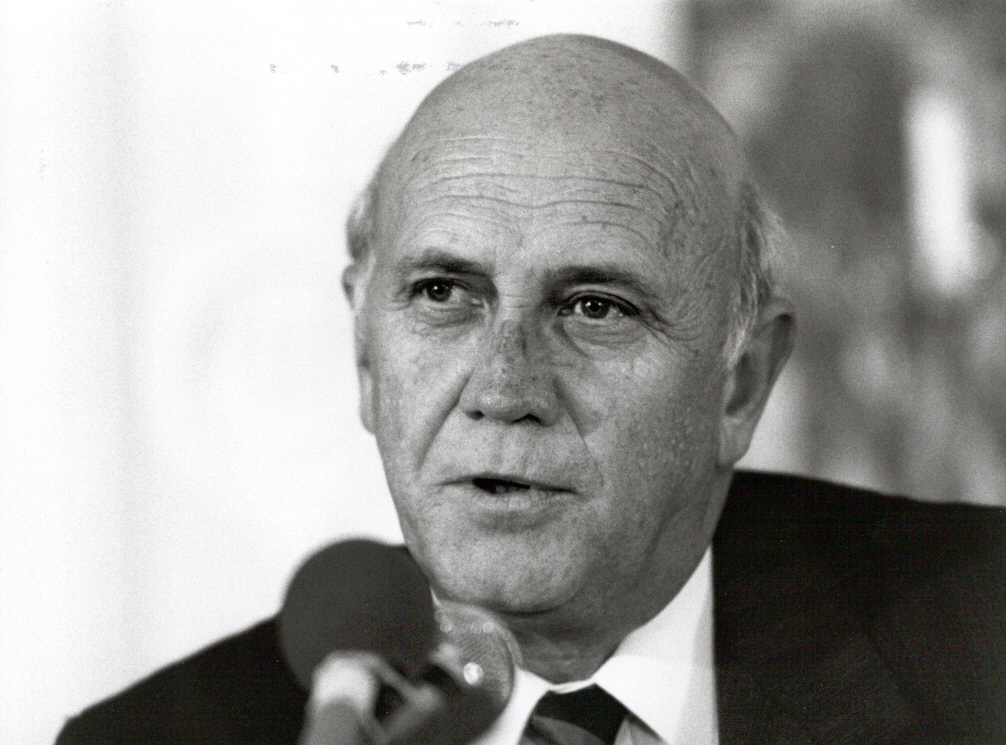|
Cape Organisation For The Democratic Taxi Association
The Cape Organisation for the Democratic Taxi Association (Codeta), also sometimes called the Congress of Democratic Taxi Association(s) or Congress for Democratic Taxi Associations, is an umbrella body for minibus taxi operators in the Western Cape province of South Africa. Formed in 1992, it is one of the two major taxi associations in the Western Cape, and has frequently been embroiled in violent conflict with its primary competitor, the Cape Amalgamated Taxi Association (CATA), since the latter broke away from Codeta in the mid-1990s. Codeta, like CATA, is a member of the Western Cape provincial arm of the South African National Taxi Council. Operations Codeta is one of several "mother body" taxi associations in South Africa: umbrella bodies, typically associated with a particular region, to which local taxi associations belong as affiliates. Individual local or long-distance taxi operators in turn belong to the local affiliates. As diplomat Jackie Dugard writes, mother bo ... [...More Info...] [...Related Items...] OR: [Wikipedia] [Google] [Baidu] |
Khayelitsha
Khayelitsha () is a township in Western Cape, South Africa, on the Cape Flats in the City of Cape Town Metropolitan Municipality. The name is Xhosa for ''New Home''. It is reputed to be the largestNew, Assertive Women's Voices in Local Election by Erna Curry, 29 January 2011 and fastest-growing township in South Africa. History initially opposed implementing the passed in 1950, and residential areas in the city remained unsegregated until the first Group Areas were declared in the city in 1957.[...More Info...] [...Related Items...] OR: [Wikipedia] [Google] [Baidu] |
Langa, South Africa
Langa is a township in Cape Town, South Africa. Its name in Xhosa means "sun". The township was initially built in phases before being formally opened in 1927. It was developed as a result of South Africa's 1923 Urban Areas Act (more commonly known as the "pass laws"), which was designed to force Africans to move from their homes into segregated locations. Similar to Nyanga, Langa is one of the many areas in South Africa that were designated for Black Africans before the apartheid era. It is the oldest of such suburbs in Cape Town and was the location of much resistance to apartheid. Langa is also where several people were killed on 21 March 1960, the same day as the Sharpeville massacre, during the anti-pass campaign. On 21 March 2010, now 50 years later, a monument was unveiled by the government in remembrance of the people who died while on the protest march. Location Langa is bordered by the M17 (Jan Smuts Drive) to the west, the N2 to the south, and the M7 to the east ... [...More Info...] [...Related Items...] OR: [Wikipedia] [Google] [Baidu] |
High Court Of South Africa
The High Court of South Africa is a superior court of law in South Africa. It is divided into nine provincial divisions, some of which sit in more than one location. Each High Court division has general jurisdiction over a defined geographical area in which it is situated. The decisions of a division are binding on magistrates' courts within its area of jurisdiction. The High Court has jurisdiction over all matters, but it usually only hears civil matters involving more than 400,000 rand, and serious criminal cases. It also hears any appeals or reviews from magistrates' courts and other lower courts. The court and its divisions are constituted in their current form by the Superior Courts Act, 2013. They replaced the previous separate High Courts, which had in 1997 replaced the provincial and local divisions of the former Supreme Court of South Africa and the supreme courts of the TBVC states ("Bantustans" created by the apartheid government in the 1950s). Important officers in ... [...More Info...] [...Related Items...] OR: [Wikipedia] [Google] [Baidu] |
Government Of The Western Cape
The Western Cape province of South Africa is governed in a parliamentary system in which the people elect the Provincial Parliament, and the parliament elects the Premier as head of the executive. The Premier leads a cabinet of provincial ministers overseeing various executive departments. The provincial government is subject to the Constitution of the Western Cape and the Constitution of South Africa, which together form the supreme law of the province. Parliament The Western Cape Provincial Parliament, situated in Cape Town, is the legislative branch of the provincial government. The parliament is a unicameral legislature of 42 members, elected by a system of party-list proportional representation. An election is held every five years, conventionally at the same time as the election of the National Assembly. The most recent election occurred in 2019. Executive The premier of the Western Cape is the head of the provincial government; chosen by the members of the provincial ... [...More Info...] [...Related Items...] OR: [Wikipedia] [Google] [Baidu] |
Cape Town Railway Station
Cape Town railway station is the main railway station of the city of Cape Town, South Africa. It is located along Adderley and Strand Streets in the city's central business district. Lines Metrorail lines Cape Town station is the hub of the Metrorail Western Cape commuter rail network, which is operated by the Metrorail division of the Passenger Rail Agency of South Africa (PRASA). The network consists of four lines, all of which originate from Cape Town: the Southern Line via the Southern Suburbs to Simon's Town; the Cape Flats Line via Athlone to Retreat; the Central Line via Langa to Mitchell's Plain, Khayelitsha and Bellville; and the Northern Line via Bellville to Paarl, Stellenbosch and Somerset West. Shosholoza Meyl Shosholoza Meyl, the inter-city rail division of PRASA, operates several long-distance passenger rail services from Cape Town: a daily service to and from Johannesburg via Kimberley; a weekly service to and from Durban via Kimberley, Bloemfontein an ... [...More Info...] [...Related Items...] OR: [Wikipedia] [Google] [Baidu] |
1994 South African General Election
General elections were held in South Africa between 26 and 29 April 1994. The elections were the first in which citizens of all races were allowed to take part, and were therefore also the first held with universal suffrage. The election was conducted under the direction of the Independent Electoral Commission (IEC), and marked the culmination of the four-year process that ended apartheid. Millions queued in lines over a four-day voting period. Altogether, 19,726,579 votes were counted, and 193,081 were rejected as invalid. As widely expected, the African National Congress (ANC), whose slate incorporated the labour confederation COSATU and the South African Communist Party, won a sweeping victory, taking 62 percent of the vote, just short of the two-thirds majority required to unilaterally amend the Interim Constitution. As required by that document, the ANC formed a Government of National Unity with the National Party and the Inkatha Freedom Party, the two other parties th ... [...More Info...] [...Related Items...] OR: [Wikipedia] [Google] [Baidu] |
Independent Electoral Commission (South Africa)
The Electoral Commission of South Africa (often referred to as the Independent Electoral Commission or IEC) is South Africa's election management body, an independent organisation established under chapter nine of the Constitution. It conducts elections to the National Assembly, provincial legislatures and municipal councils. An interim Electoral Commission was created in 1993 to manage the first non-racial election of the national and provincial legislatures, which was held on 26 to 29 April 1994. The permanent Electoral Commission was established on 17 October 1996. The Commission has been chaired by Johann Kriegler (1997–1999), Brigalia Bam (1999–2011), Pansy Tlakula (2011–2014), and Glen Mashinini (2015–present). History Interim Independent Electoral Commission Under the apartheid government, elections in South Africa were administered by the Department of Home Affairs, under the Electoral Act of 1979. Election management was only devolved to an independent ... [...More Info...] [...Related Items...] OR: [Wikipedia] [Google] [Baidu] |
Pan Africanist Congress Of Azania
The Pan Africanist Congress of Azania (known as the Pan Africanist Congress (PAC)) is a South African national liberation Pan-Africanist movement that is now a political party. It was founded by an Africanist group, led by Robert Sobukwe, that broke away from the African National Congress (ANC) in 1959, as the PAC objected to the ANC's "the land belongs to all who live in it both white and black" and also rejected a multiracialist worldview, instead advocating a South Africa based on African nationalism. History The PAC was formally launched on 6 April 1959 at Orlando Communal Hall in Soweto. A number of African National Congress (ANC) members broke away because they objected to the substitution of the 1949 ''Programme of Action'' with the Freedom Charter adopted in 1955, which used multiracialist language as opposed to Africanist affirmations. The PAC at the time considered South Africa to be an African state by right an "inalienable right of the indigenous African people" a ... [...More Info...] [...Related Items...] OR: [Wikipedia] [Google] [Baidu] |
African National Congress
The African National Congress (ANC) is a Social democracy, social-democratic political party in Republic of South Africa, South Africa. A liberation movement known for its opposition to apartheid, it has governed the country since 1994, when the 1994 South African general election, first post-apartheid election installed Nelson Mandela as President of South Africa. Cyril Ramaphosa, the incumbent national President, has served as President of the ANC since 18 December 2017. Founded on 8 January 1912 in Bloemfontein as the South African Native National Congress (SANNC), the organisation was formed to agitate, by moderate methods, for the rights of black South Africans. When the National Party (South Africa), National Party government came to power 1948 South African general election, in 1948, the ANC's central purpose became to oppose the new government's policy of institutionalised apartheid. To this end, its methods and means of organisation shifted; its adoption of the techn ... [...More Info...] [...Related Items...] OR: [Wikipedia] [Google] [Baidu] |
Negotiations To End Apartheid In South Africa
The apartheid system in South Africa was ended through a series of bilateral and multi-party negotiations between 1990 and 1993. The negotiations culminated in the passage of a new interim Constitution in 1993, a precursor to the Constitution of 1996; and in South Africa's first non-racial elections in 1994, won by the African National Congress (ANC) liberation movement. Although there had been gestures towards negotiations in the 1970s and 1980s, the process accelerated in 1990, when the government of F. W. de Klerk took a number of unilateral steps towards reform, including releasing Nelson Mandela from prison and unbanning the ANC and other political organisations. In 1990–91, bilateral "talks about talks" between the ANC and the government established the pre-conditions for substantive negotiations, codified in the Groote Schuur Minute and Pretoria Minute. The first multi-party agreement on the desirability of a negotiated settlement was the 1991 National Peace Accord, c ... [...More Info...] [...Related Items...] OR: [Wikipedia] [Google] [Baidu] |

.jpg)





